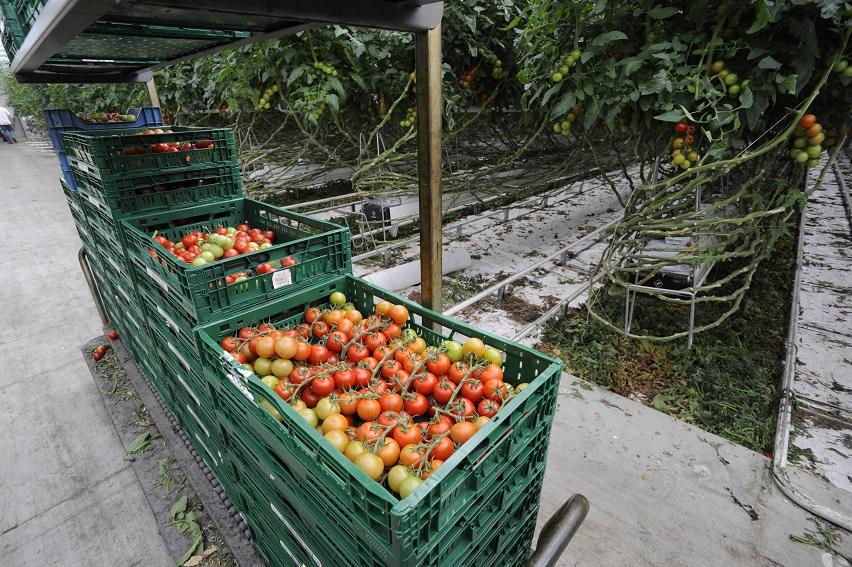On Tuesday, Oct. 8, the report "Toekomstperspectief Tuinbouwketen Limburg+" (TTL+) was presented to key parties in the horticultural sector of the southeastern Netherlands. The report provides not only a detailed picture of the challenges facing the horticultural sector, but also of the opportunities for making this sector sustainable and future-proof. A wide range of partners have declared their joint commitment to implementing the report's recommendations. This under the motto: "And now go ahead."
Jasper Kuntzelaers, deputy for agriculture of Limburg and also chairman of the steering committee that drafted the report: "The horticultural sector is of great importance for Limburg, North Brabant and beyond. This calls for a clear vision for the future. Dutch horticulture has a production value of about €20 billion and an export value of €28 billion. Much of this comes from the Southeast Netherlands. Almost all food horticultural products are exported within Europe, mainly to the home region and Germany. Furthermore, knowledge-intensive horticultural products, such as seeds, young plants, greenhouses, cultivation techniques and cultivation support systems, are in great demand worldwide."

Further development sector
The report "Toekomstperspectief Tuinbouwketen Limburg+" provides a roadmap for the further development of this sector, which is crucial for the regional economy, employment and sustainability. The plan focuses on sustainable production methods, technological innovation and strengthening cooperation between all chain partners. This will not only build a more robust horticultural sector, but also contribute to broader societal challenges, such as food security and climate neutrality.
"This report gratefully draws on the practical knowledge of many dozens of people with expertise and honest opinions. The implementation of this report will have a direct impact on Limburg and Brabant society. This means opportunities for economic growth, job retention and the development of new technologies within the sector. The report also emphasizes that the sector will continue to be an important player in realizing the energy transition in the region, through, for example, the application of geothermal energy as a sustainable energy source. Moreover, cooperation between companies, governments and knowledge institutions will be further strengthened, which contributes to strengthening the international position of regional horticulture," said Jasper Kuntzelaers.
Five pillars
.The report is structured around five central themes, which together form the basis for implementing the vision for the future:
- Driving entrepreneurship and innovation: Cooperation between companies, knowledge institutions and governments must be strengthened to increase innovation capacity within the sector. The creation of an "Innovation Engine" is recommended to stimulate technological developments, data collection and steering within the chain.
- Sustainability and energy transition: The horticultural sector plays an important role in energy transition. The report states that making the sector more sustainable is crucial to remain future-proof. Geothermal energy, for example, can be a sustainable source of energy for greenhouse horticulture. However, this still requires the removal of some barriers, such as uncertainty about seismic risks.
- Future-proof cultivation methods: Innovation is also needed in the area of cultivation. This includes plant health, water management, breeding and crop protection. One of the concrete proposals is the establishment of a Fieldlab at the Brightlands Campus Greenport Venlo, focusing on plant innovation and sustainable cultivation methods.
- Sharing physical space: Space for horticulture must be used more efficiently. The report advocates an integrated approach in which municipalities, provinces and water boards work together to use the available space appropriately. This means that intensive cultivation should take place in appropriate locations so that space can be created elsewhere for more extensive uses.
- Labor market and talent development: The report states that the sector must do more to become more attractive to workers. This means paying more attention to talent development and connecting education to the needs of the sector. At the same time, living conditions for migrant workers must be improved, with suitable housing and amenities. Strengthening the integration of migrant workers into local communities is a key focus here.
Collaboration for a sustainable future
The signatories of the Declaration of Intent confirm their joint commitment to implement the report's recommendations. This means stronger cooperation between all chain partners, from producers and processors to governments and knowledge institutions. Greenport Venlo is seen as an important platform for this cooperation, but the connection with Southeast Brabant and surrounding border regions will also be further strengthened.
The future of horticulture in the Southeast Netherlands is closely intertwined with the challenges of climate change, energy and food security. The cooperation ratified today gives an important boost to strengthening the sector, both regionally and internationally. The signatories of the letter of intent are: Province of Limburg, Municipalities of the North Limburg Region, Limburg Agricultural and Horticultural Union (LLTB), Southern Agriculture and Horticulture Organization (ZLTO), Rabobank Limburg, Glastuinbouw Nederland, Greenports Netherlands, ZON NV, Glastuindersplatform Zuidoost-Nederland, Brightlands Campus Greenport Venlo, Maastricht University, Fontys, Greentechlab and the HAS green academy.
Strengthening positioning
.The report further emphasizes the importance of stronger communication about the sector. The horticultural chain in the Southeast Netherlands needs to profile itself as a leader in the sustainable production of healthy food within a circular economy. By strengthening this communication and organizing a joint lobby, the sector can position itself more strongly at the national and European level.
"With this report, the horticultural sector in the Southeast Netherlands has a clear route to the future. The joint commitment of all parties involved, as laid down in the declaration of intent, marks the beginning of a new phase for the sector. The challenges are great, but the opportunities to build a future-proof and internationally recognized cluster are equally great. It is now up to the sector to take the next steps and realize its ambitions," said Jasper Kuntzelaers.
.